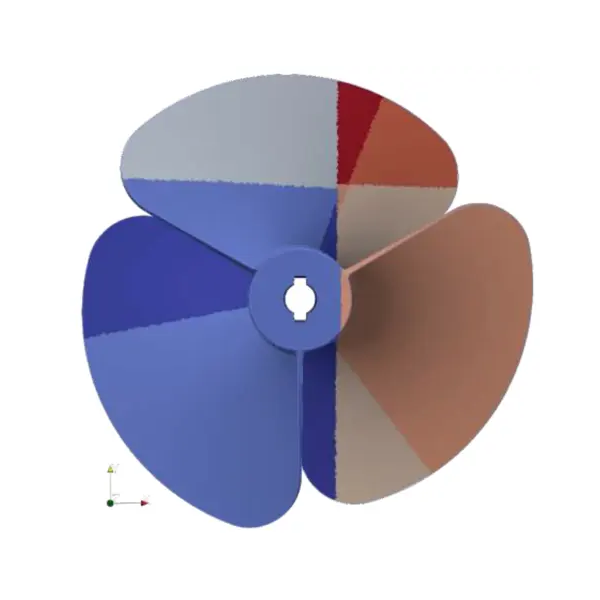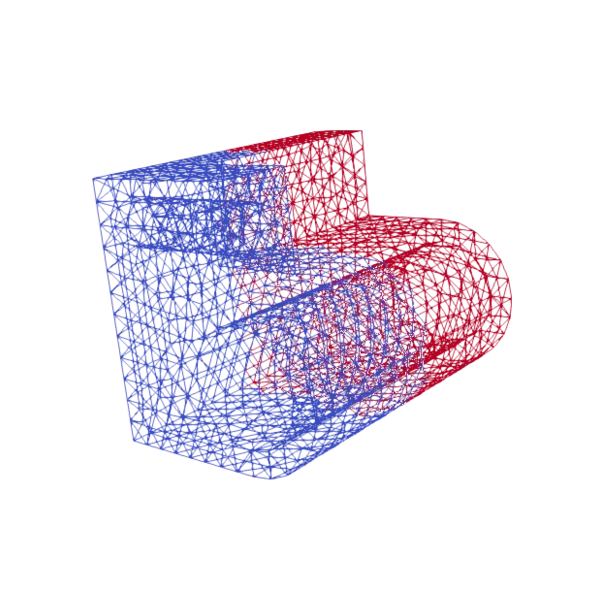Cédric Chevalier works in a CEA team specialized in parallel computing for numerical simulation. His main interests are combinatorial scientific computing and sparse linear algebra.
Main research topics
Partitioning
Partitioning problems arise notably for load-balancing or ordering. These combinatorial problems are usually solved through numbers, vectors of numbers, graphs, or mesh partitioning.
Two Ph.D. theses have been completed in this area, and a third one is ongoing, producing the software Coupe.
Linear Algebra
The focus is on sparse linear algebra and iterative methods for solving large linear systems. Works are mainly about implementing and composing linear solvers in the Alien software.
Performance and numerical accuracy
Les optimisations logicielles et matérielles autour des calculs flottants peuvent changer les résultats. L’étude de ces changements et comment les gérer a donné lieu à une thèse, dont est issu le logiciel Shaman.
Other interests
High-performance computing
How to efficiently exploit supercomputers is an arduous task. Mini-applications make it possible to understand how to deal with new architectures. Internships help a lot with this activity.
Programming technics
New programming languages and paradigms promise more robust and efficient codes. Evaluating them for scientific computing is essential. It is done with mini-applications and also specific internships. The Rust language is particularly of interest.
SIAM International Meshing Roundtable 2023, Springer Nature Switzerland, p. 43-63, 2023



abstract

Abstract
This paper presents Coupe, a mesh partitioning platform. It provides solutions to solve different variants of the mesh partitioning problem, mainly in the context of load-balancing parallel mesh-based applications. From partitioning weights ensuring balance to topological partitioning that minimizes communication metrics through geometric methods, Coupe offers a large panel of algorithms to fit user-specific problems. Coupe exploits shared memory parallelism, is written in Rust, and consists of an open-source library and command line tools. Experimenting with different algorithms and parameters is easy. The code is available on Github.
Euro-Par 2022 International Workshops, Glasgow, UK, August 22–26, 2022, Revised Selected Papers, Glasgow, United Kingdom, 2023

abstract

Abstract
Mesh partitioning used for load balancing in distributed numerical simulations is typically managed with tools that are good enough but not optimal. Their use scope is not explicitly dedicated to load balancing, and they cannot make use of all available information. In this paper, the mesh partitioning problem and the context for its use are precisely defined. Then, existing tools are presented, along with their characteristics and features that are missing. Finally, a new partitioning platform – the subject of my PhD thesis – is presented: its architecture, software engineering choices made along the way, and how it can be the best fit for load balancing distributed simulations. The platform is open-source and is hosted on GitHub: https://github.com/LIHPC-Computational-Geometry/coupe .
ACM Transactions on Mathematical Software, Volume 48, Issue 4, 2023

abstract
Abstract
Floating-point numbers represent only a subset of real numbers. As such, floating-point arithmetic introduces approximations that can compound and have a significant impact on numerical simulations. We introduce encapsulated error, a new way to estimate the numerical error of an application and provide a reference implementation, the Shaman library. Our method uses dedicated arithmetic over a type that encapsulates both the result the user would have had with the original computation and an approximation of its numerical error. We thus can measure the number of significant digits of any result or intermediate result in a simulation. We show that this approach, although simple, gives results competitive with state-of-the-art methods. It has a smaller overhead, and it is compatible with parallelism, making it suitable for the study of large-scale applications.
2020 Proceedings of the SIAM Workshop on Combinatorial Scientific Computing, p. 85-95, 2020

abstract
Abstract
Running numerical simulations on HPC architectures requires distributing data to be processed over the various available processing units. This task is usually done by partitioning tools, whose primary goal is to balance the workload while minimizing inter-process communication. However, they do not take the memory load and memory capacity of the processing units into account. As this can lead to memory overflow, we propose a new approach to address mesh partitioning by including ghost cells in the memory usage and by considering memory capacity as a strong constraint to abide. We model the problem using a bipartite graph and present a new greedy algorithm that aims at producing a partition according to the memory capacity. This algorithm focuses on memory consumption, and we use it in a multi-level approach to improving the quality of the returned solutions during the refinement phase. The experimental results obtained from our benchmarks show that our approach can yield solutions respecting memory constraints for instances where traditional partitioning tools fail.







